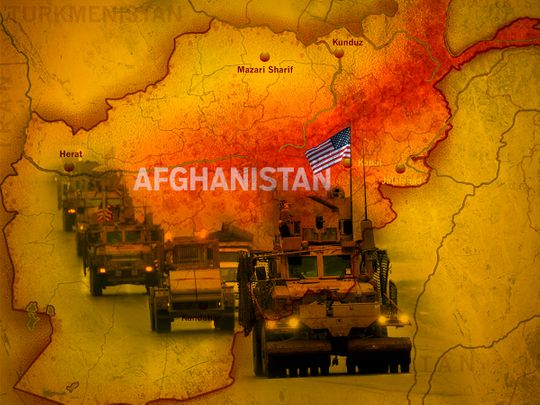
An expert in international politics at the Ukrainian Institute of the Future on what the U.S. contingent has done for Afghanistan and why the U.S. military will have left the country by September 2021.
What is happening now in Afghanistan is a very good lesson for us. What is the lesson exactly? I would highlight three points.
1. A powerful ally is not a panacea for all problems or a guarantee of success.
Even a reliable and mighty ally who is willing to help doesn’t substitute for self-reliance in any way and doesn’t mean that you can relax and do nothing, relying on help from the outside, good fortune or God’s will.
As soon as a country relaxes and begins to wait passively for a miracle from abroad, absorbing increasingly more windfalls and loans without getting anything worthy in return, it eventually becomes a suitcase without a handle, something you want to throw away as soon as possible.
That is what happened to Afghanistan: As soon as the U.S. found an opportunity and the war became too toxic and cumbersome, it abandoned Afghanistan, signed a peace treaty with the Taliban (it is impossible to negotiate with terrorists) and left Afghanistan, focusing on entirely different directions and goals.
2. A change in the environment changes the situation. Whoever fails to notice is a loser.
Nothing lasts forever. The environment is changing, especially in the current era. When this happens, the world falls apart.
If a country does not notice this trend, it loses out to those who not only notice, but also realize what is happening, analyze it, and take steps to adjust.
The Afghan authorities didn’t reach any agreement among themselves before the U.S. brought negotiations with the Taliban to a conclusion. Instead, Afghanistan believed that Washington would not withdraw all troops from the country, failed to take the negotiations seriously, believed Afghanistan was still the “Eastern rampart” of the Western world, and therefore continued to argue among themselves about finances, position and influence, unable to overcome internal strife.
And when zero hour came from out of the blue, there was feverish bidding, shouting, panic, and turbulent calls for the allies to do something. Yes, of course, they could reach an agreement, but they would get much less than they would have if they had done so earlier.
3. Heaps of money, highly qualified specialists and advisers, advanced equipment, lobbyists, military bases — all this has no effect if it is not backed up by action and not delegated to decision-making at the national level, taking into account local specifics.
The U.S. has poured $928 billion into Afghanistan for 20 years, but as soon as a few thousand American troops started to fly away with their equipment, the brave and powerful Afghan army trained by Western instructors just fell apart.
No matter how much foreign allies help make things happen, despite their billions, you can screw everything up and go back to square one if you do not deal with domestic change and rely on outside help, among other things. I’m referring to the Afghan government’s lack of a clearly defined development strategy and its inability to reach a compromise with other elite groups.
As for the U.S., this point demonstrates something different. You cannot “copy and paste” seemingly successful Western concepts and apply them blindly to localities. You cannot deal with nation-building when (a) no one needs it and (b) it is impossible to do by neglecting the reality on the ground.

Leave a Reply
You must be logged in to post a comment.